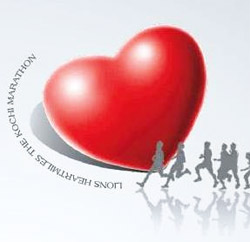
Running 26.2 miles is a tremendous physical accomplishment; it can also take a toll on the body. When a person runs a marathon, the heart pumps about seven times as much blood. All that stress can lead to cardiac arrest. Its extremely rare, affecting only one out of 184,000 runners, but many others may be at risk.
Peter McCullough, MD, MPH, Cardiologist at Baylor University Medical Center has run a marathon in all 50 states. Hes got the trophy to prove it. But two years ago, he stopped running marathons.
Dr. McCullough told Ivanhoe, For some individuals the excessive exercise and endurance training and racing at the marathon level can directly cause heart muscle damage.
After the 2007 death of Ryan Shay, who collapsed trying to qualify for the U.S. Olympic team, Dr. McCullough and a research team conducted studies on marathoners. The team used MRIs and blood tests and found indicators that up to 25-percent of marathon runners could be at risk for scarring in the heart. In rare cases that can lead to cardiac arrest.
Great runners have died, and theres been an interest in the medical community to ask the questions why, said Dr. McCullough.
All marathons now have first aid and defibrillators on site. Dr. McCullough also recommends more research efforts including a national research registry of runners who have had heart problems, as well as blood tests before and after marathons, and heart MRIs.
Dr. McCullough says people shouldnt stop running, but for some, running and walking a shorter distance may be safer.
According to the New England Journal of Medicine, 11 million people ran marathons between 2000 and 2010. There were 59 cardiac arrests.
source: http://www.ivanhoe.com/